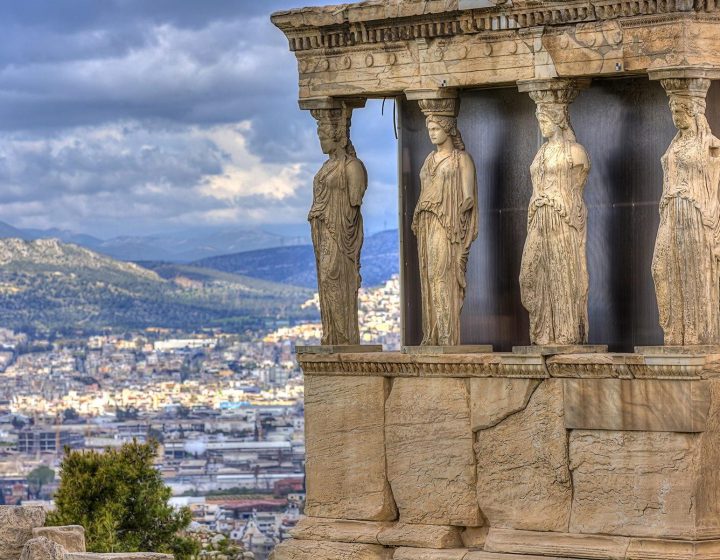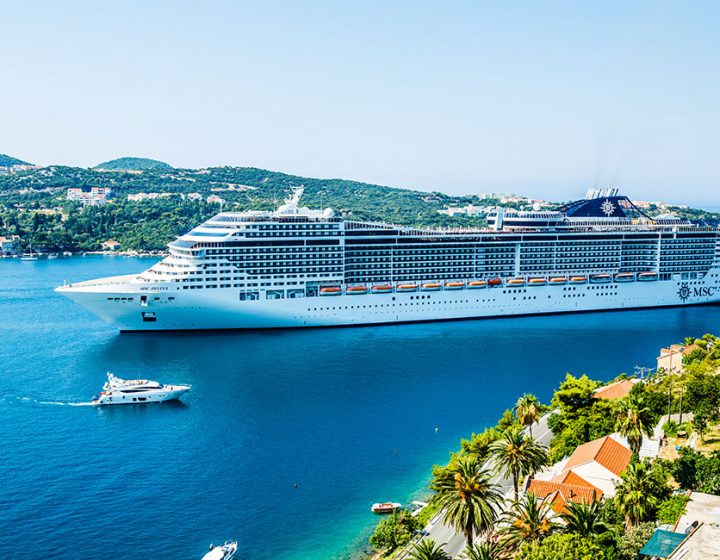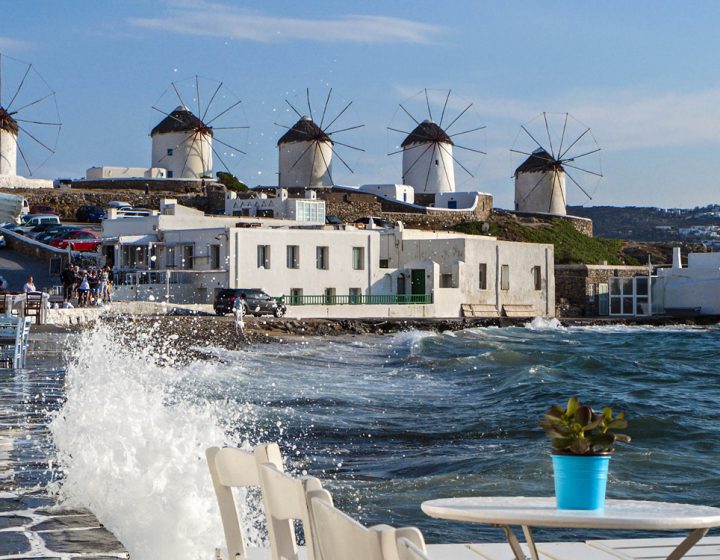Greece Highlights
Your comprehensive travel guide to Greece - All in one place!
Greece is a small country. It hangs precariously at the southern end of Europe where for five millennia has bridged east and west. In antiquity it was the pivot point around which commerce and ideas amalgamated into a civilization so unique that it still resonates with its influence today worldwide. Its greatest legacy is that its ancient ideas became the foundation of the western world.
Geography
It is a peninsular and mountainous country located in Southern-Eastern Europe, in the Balkans peninsula. The country has the largest coastline in Europe (13,676km) due to its numerous islands. Greece has a total of 2,000 Greek islands but only 168 are inhabited. The country is washed to the east by the Aegean Sea, to the west by the Ionian and to the south by the Mediterranean Sea.
Two-thirds of the territory is covered with mountains. The highest mountain peak is at Mount Olympus, at an altitude of 2917m. The country is very rich in natural resources providing petroleum, magnetite, lignite, bauxite, hydropower, and marble. The geography of Greece has marked the development of many civilizations throughout the ages.
The special features of the geography of Greece have formed an equally special natural environment. Greece has a rich diversity in flora and fauna and many species are original in this country, which means that they are found only there in the world. These rare species are found in forests, lakes, rivers, underground caves and canyons. In fact, the limestone and volcanoes of Greece have composited the Greek territory and allowed the formation of many caves and canyons.
Culture
Traces of a centuries-old and important history is etched in every corner of Greek land: findings from the Prehistoric and Archaic Periods, unique works from Classical, Hellenistic, Medieval and Byzantine monuments, creations from folk art cultures, traces from the passing eons of other civilizations and different religions that coexist with current creations, constructions and modern works of art. Greece is a true paradise for cultural tourism, a large journey into history and art. Educational excursions, theatrical productions, festivals, pilgrimages, visits to archaeological sites, monuments and museums, excursions to study the natural environment, folk art and culture – these are just a few of the many things that Greece has to offer in the cultural tourism sector.
Population
The population rose from slightly over 750,000 in 1836 to 10,264,156 in 1991, reflecting the expansion of national boundaries and the return of ethnic Greeks from the eastern Mediterranean. An even greater increase was prevented by emigration and a declining birth rate.
Birth rates have declined since the early twentieth century. The proportion of elderly people is the highest in Europe at over 20 percent, and the overall rate of natural increase is among the lowest.
Albanians, Armenians, Bulgarians, Slavic Macedonians, Pomaks (Bulgarian Muslims), Turks, Jews, Roma (Gypsies), Vlachs, Sarakatsanoi, and several other groups have long been part of the country's cultural mosaic, although their numbers have decreased. The 1990s witnessed an unexpected influx of immigrants as refugees and labor migrants entered from Eastern Europe, the Middle East, North Africa, and the Philippines. These newcomers, especially the Albanians, estimated at between one-half million and one million, have placed minority issues at the forefront of public discussion.
+374 55 56 66 56 24/7

7 days
Country of Ancient Gods
Athens-Argolis-Olympia-Delphi-Athens Greece is an amazing country to discover with its numerous museums, parks, and the shopping areas of Kolonaki, Hermou, Voukourestiou Street, Monastiraki and Plaka. During your travelling you’ll have a relaxing and fantastic cruise to the Saronic Islands, will discover the...
$655 View More
8 days
Three Greek Islands
Venice-Kotor-At Sea-Mykonos-Santorini-Corfu-Bari-Venice 2.09.2019-9.09.2019
$710 View More
